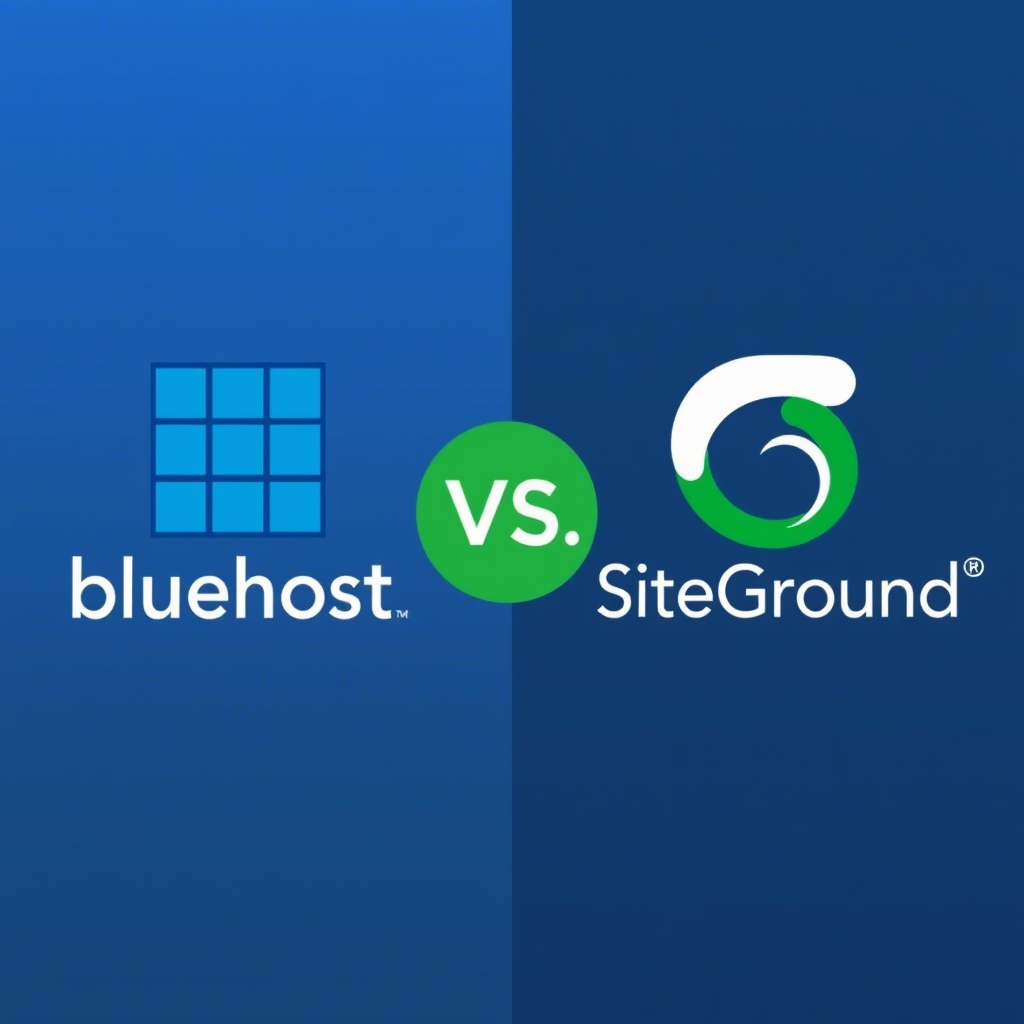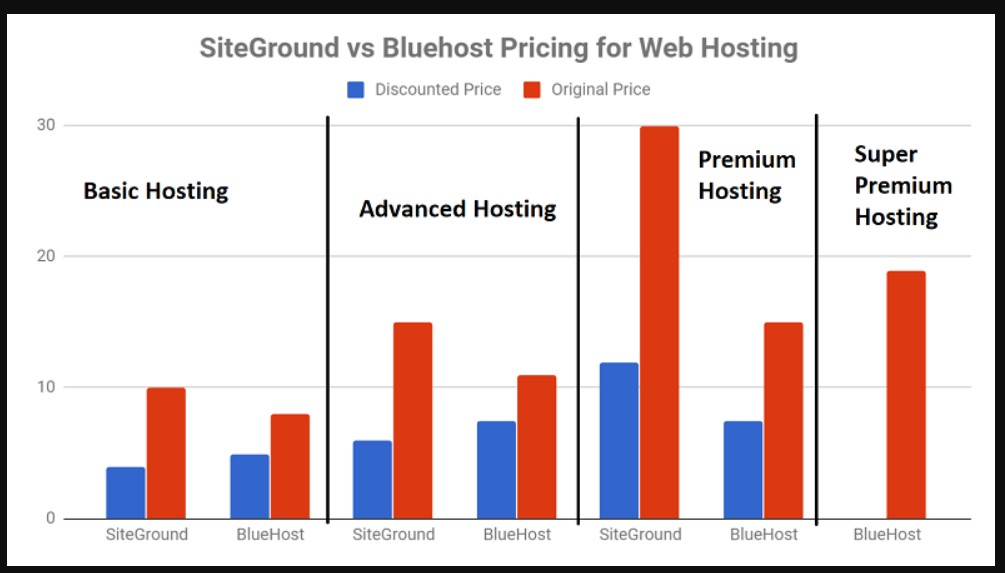
Introduction & Overview
Bluehost vs. SiteGround are two of the most popular web hosting providers, making it essential to compare them to find the best option for your needs. Web hosting is a critical element for anyone looking to establish an online presence, whether you’re running a personal blog or a full-scale e-commerce site. In 2025, Bluehost and SiteGround continue to be two of the most popular hosting providers on the market. In this blog, we’ll dive into a detailed comparison covering everything from features and pricing to personal experiences and alternatives, helping you decide which provider best suits your needs.
Table of Contents
Quick Comparison
If you’re in a hurry, here’s a quick summary:
- Bluehost is a cost-effective, beginner-friendly hosting provider with straightforward features.
- SiteGround offers superior performance, excellent security, and top-tier customer support, making it ideal for businesses and advanced users.
Features
Both Bluehost and SiteGround come with a range of features, but they cater to different types of users.
- Bluehost Features: One-click WordPress installation, cPanel integration, free domain for the first year, and a user-friendly website builder.
- SiteGround Features: Cloud-based infrastructure, custom control panel, daily backups, and advanced caching solutions for better performance.
Personal Experience
✅ Bluehost (Best for Beginners)
- Easy Setup – Smooth onboarding with one-click WordPress installation and user-friendly cPanel.
- Free Domain – Offers a free domain for the first year, making it budget-friendly for new websites.
- Affordable Pricing – Lower initial costs compared to SiteGround, great for beginners.
- Performance Issues Under Load – Slows down with high traffic, especially on shared hosting plans.
- Inconsistent Support – Customer service response time can vary, with occasional long wait times.
✅ SiteGround (Best for Performance & Reliability)
- Superior Speed – Runs on Google Cloud infrastructure with built-in caching for faster load times.
- Reliable Uptime – More stable under heavy traffic compared to Bluehost.
- Excellent Support – 24/7 expert assistance with quick response times.
- Steeper Learning Curve – Custom Site Tools dashboard replaces cPanel, requiring some adaptation.
- Higher Costs – More expensive than Bluehost, especially after the initial discount period.
Pricing
- Bluehost: Starts at $2.95/month (introductory rate) but renews at higher prices.
- SiteGround: Starts at $3.99/month with consistent pricing and added premium features.
Bluehost is more budget-friendly for beginners, while SiteGround justifies its pricing with enhanced performance and customer support.

Pros & Cons
Bluehost Pros:
- Affordable pricing for new users.
- Beginner-friendly interface.
- Free domain and SSL.
Bluehost Cons:
- Slower performance during high traffic.
- Higher renewal costs.
SiteGround Pros:
- Fast loading speeds with advanced caching.
- Excellent security measures and daily backups.
- Responsive and knowledgeable customer support.
SiteGround Cons:
- Slightly higher pricing.
- Steeper learning curve for new users.
Alternatives
If neither Bluehost nor SiteGround fits your needs, consider these alternatives:
- HostGator – Affordable and beginner-friendly.
- DreamHost – Strong privacy policies and good performance.
- A2 Hosting – Excellent for speed and developer-friendly tools.
- InMotion Hosting – Great customer service and business-focused hosting.
Other Relevant Categories
Reliability & Uptime
- Bluehost: 99.9% uptime guarantee, but occasional downtimes have been reported.
- SiteGround: Uses Google Cloud infrastructure, leading to near-perfect uptime.
Performance & Speed
- Bluehost: Decent speeds but can slow down under heavy traffic.
- SiteGround: Outperforms Bluehost with optimized caching and SSD storage.
Security & Data Protection
- Bluehost: Free SSL, basic malware protection.
- SiteGround: Advanced security tools, daily backups, AI-based protection.
Conclusion/Summary: Who is the Winner?
In summary, both Bluehost and SiteGround have their merits. Bluehost is an excellent choice for beginners and those on a budget, offering a seamless, user-friendly experience with plenty of features to get started. However, if you value performance, robust security, and exceptional customer support, SiteGround emerges as the clear winner for businesses and users who require a more resilient and high-performing hosting environment. Ultimately, your choice will depend on your specific needs and priorities—if cost and ease-of-use are paramount, Bluehost is the way to go; for superior performance and support, SiteGround is hard to beat.
on your specific needs. If budget and ease of use are your priority, go with Bluehost. If performance and support matter more, SiteGround is the way to go.
